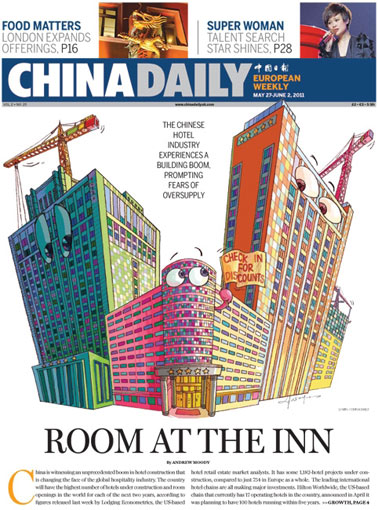Web Comments
Disregard university rankings
Updated: 2011-06-02 09:27
By Patrick Mattimore (chinadaily.com.cn)
Then there are some things where rankings become wholly subjective. These are the "best of" lists that have become so popular and purport to identify everything from the best hospital or ice cream parlor in a given locale to beauty contests. The fact that these rankings use specific criteria to arrive at the results makes them no less subjective, just like university rankings.
Ultimately, what is the harm to students and their families in compiling university rankings? I would suggest the harm results from businesses creating artificial demand. Rankings drive government grants and the quality of students the colleges can attract. Universities become more interested in satisfying the services ranking them than in serving their customers. The marketing of education makes the packaging, not the product, better.
Usually the annual meeting of the Association for Institutional Research - a group that compiles statistics about higher education in the US - is a rather dull affair. That changed in 2009 when a presentation by Catherine Watt, a former institutional researcher and staff member at Clemson University, shocked attendees at her session.
According to Inside Higher Ed, a nationally respected source of information for colleges, Watt alleged that Clemson had pursued the goal of improving its USN&WR college ranking "almost single-mindedly, seeking to "affect - I'm hesitating to use the word 'manipulate,' " Watt said - "every possible indicator to the greatest extent possible." She added: "It is the thing around which almost everything revolves for the president's office."
Watt told her audience, consisting of mostly academics (and at least one reporter), of specific steps Clemson had taken to pander to USN&WR evaluation criteria including: manipulating class sizes, reworking admissions criteria, increasing faculty salaries and then altering ways that information was reported to USN&WR. Most shockingly, Dr. Watt admitted that Clemson downgraded peer evaluations of sister institutions. Peer evaluations are the single most heavily weighted criteria in the rankings.
As to the morality of Clemson's aggressive approach to improving its ranking, Dr. Watt said, "we have walked the fine line between illegal, unethical, and really interesting."
It is certainly the prerogative of USN&WR or anyone to rank colleges, either in the US or in China. It's up to the rest of us to ignore them.
The author is a fellow at US-based Institute for Analytic Journalism and an adjunct law instructor at Tsinghua/Temple Law School LLM Program in Beijing.
E-paper

Tapping into the future
Foreign companies are investing in China's water industry as many predict a growing profit margin.
Preview of the coming issue
Headhunters ride on growth
Commercial property rides wave
Specials

Cuisine central
London's Chinatown is helping diners appreciate full palate of Chinese food

Tying the knot
Danish couple's high-end macrame export business takes off in the mountains of Yunnan.

Truly a super woman
Li Yuchun first came to prominence in 2005 as the Super Girl winner, and since then has become an international star.
